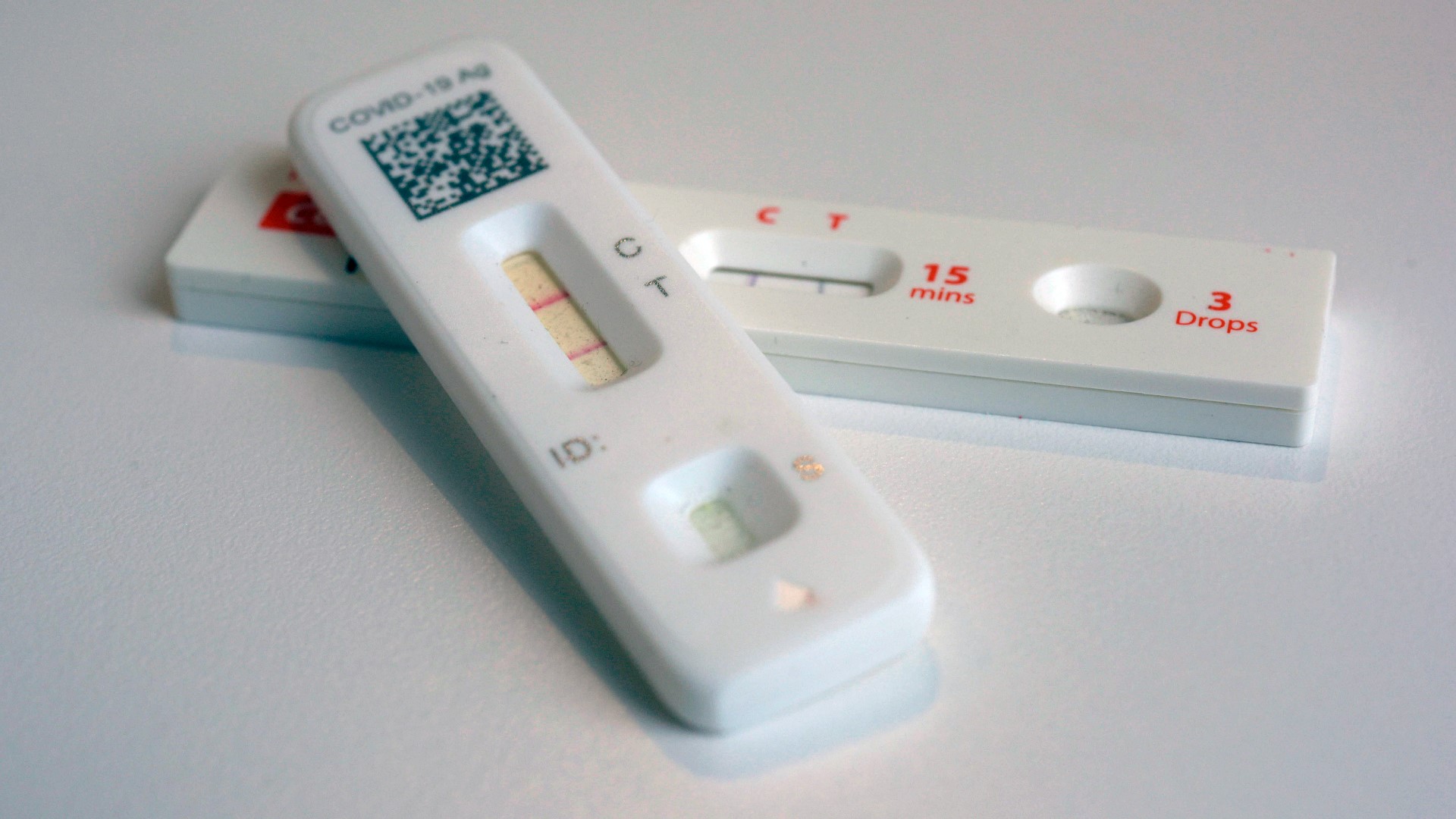Dentists and other businesses are donating equipment and supplies to hospitals that are reporting or suffering shortages while treating coronavirus patients.
The N95 respirator masks and other personal protective equipment are among the most requested items for doctors and nurses.
The federal government is sending supplies from the Centers for Disease Control's national stockpile and working with private companies to ramp up production. Meanwhile, people are reaching out to doctors and hospitals on their own, offering what they can.
From dentists donating their own supplies to contractors donating respirator masks, people are stepping up in a time of need.
'I started reaching out to friends'
James Pring, a molecular biologist at Columbia University, enjoys woodworking when he's not in the lab for his day job. Pring listens to a couple of woodworking podcasts weekly, including "Shop Talk Live - Fine Woodworking."
After this week's episode, he realized other woodworkers and contractors have equipment hospitals need, such as respirator masks. Contractors use them to avoid breathing in dust during construction. Pring contacted the podcast host, Ben Strano.
"It's a running joke in the woodworking community that people over-order," the masks, Pring said. "I started reaching out to friends and said, 'Hey, if you have some let me know. ...' They're going to do much more good on the face of a doctor or a nurse or a scientist than the face of someone who's tinkering about in their shops."
Health care workers don't use the exact same masks as woodworkers, but when the option is a construction mask or nothing, using the construction masks for doctors and nurses is a better option, Pring believes. 3M, an American manufacturer of these masks, makes them for health care workers and construction workers.
Pring requested woodworkers donate their refillable N95 and N100 cartridges, filters that go inside of the masks, to health care workers, along with any extra masks.
When Strano received Pring's message on March 17, he jumped into action, calling on the Fine Woodworking website -- where he is a digital brand manager -- and social media community to inform contractors and woodworkers across the country of the need for donations.
On the other side of the country from Strano's home in New Town, Connecticut, two contractors in California saw the post.
Contractor Stuart Slack in Los Gatos, California, realized he had extra n95 respirator masks sitting in his garage from an attempted donation to fire victims in Napa, California. He missed the window to donate and still had the box.
Slack reached out to a surgeon friend at Santa Clara Valley Medical Center, a San Jose County Hospital. The friend said he would pick them up as soon as possible.
Paul Kavanagh, owner of Hill 16 Construction in San Jose, had a few N95 respirators to donate. He reached out to his doctor at Kaiser Permanente in Santa Clara and asked if he wanted the extra masks. The doctor picked them up that night.
Another contractor friend of Kavanagh's, Liam O'Brien, had 160 masks of his own. Together, they donated 175 masks to Kavanaugh's doctor.
"These are the guys on the front lines. The man in charge says they are fighting a war here. The only ones fighting a war are the doctors and the nurses. They need them more than anybody else," Kavanagh said. "We can suck in a bit of dust, and we'll survive, but they won't."
Goldman Sachs, dentists donate gear
Dr. Anthony Fauci, the nation's top infectious disease expert, and the American Dental Association recommended patients delay all nonemergency or elective medical procedures in an effort to save supplies.
Some hospitals across the country mandated that all nonessential appointments be canceled. The states of Ohio and Michigan made similar announcements.
While dental offices shift to canceling nonessential procedures, some dentists are attempting to coordinate donation of the supplies they have that hospitals might need.
The Massachusetts Dental Society said in a tweet that they were working with the Massachusetts Emergency Management Agency (MEMA) to organize donations from dental offices. A page on their website explains what donations are needed and how to make an appointment to drop off supplies at MEMA.
New York Gov. Andrew Cuomo announced Friday that Goldman Sachs, the investment bank and financial services company, donated 100,000 masks to the state. Cuomo called on others to consider donating what they could.
"Clinics that are closed," he said. "We need those masks, gowns, gloves, and we need them now."
While every donation counts, Dr. Evan Benjamin, chief medical officer of Ariadne Labs a joint project of the Harvard T.H. Chan School of Public Health and The Brigham and Women's Hospital, said the donations aren't enough to fulfill the need across the country.
"Even if we had everyone donate all of these to their local hospital, we would still have a shortage," Benjamin said, also an associate professor at both HPS and Harvard Medical School. "It wouldn't be enough, but it would help, so I would encourage the donation. If they have (personal protection equipment), particularly the masks, I would encourage the donation to their local hospital. We do have to work on the bigger picture at the same time."
Pring from Columbia University agreed that donations will make an impact.
"If we get people to donate 10,000 masks, that's 10,000 health care workers who have a reduced chance of getting sick," Pring said. "That's 10,000 more people who can help people. It just seems the smart thing to do."



